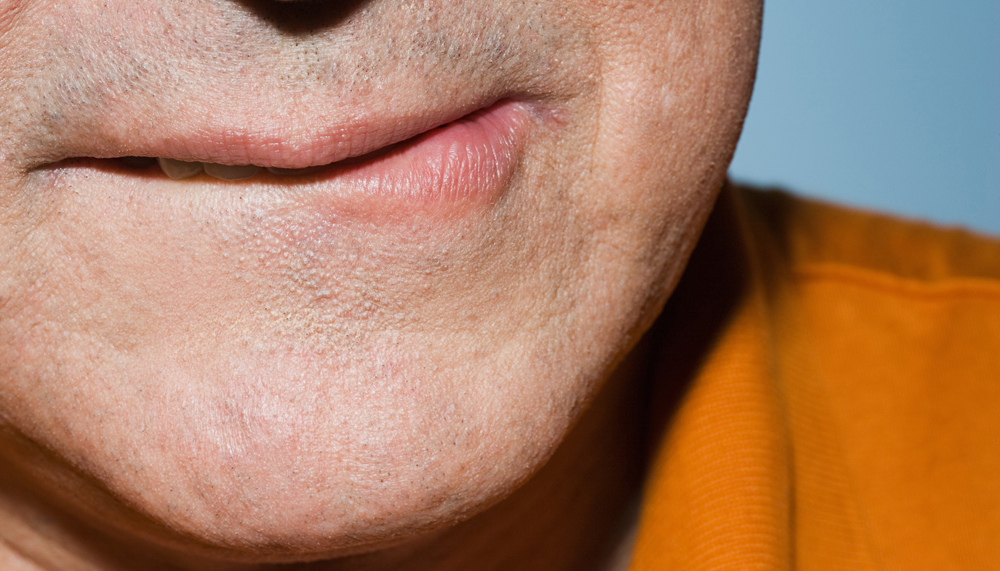Oral disease contributes to both poor dental health, and negative healthcare outcomes.
Oral disease is one of twelve chronic diseases identified as National Health Priority Areas (NHPA) by the Australian Institute of Health and Welfare (AIHW). In 2006, AIHW estimated over seven million Australians had a chronic disease, four million a disability, and three million required care assisted by over two and half million carers. About fourteen million of the population go to the dentist annually. Those most likely not to go are those with chronic disease.
Oral disease almost always affects chronic diseases. Medical research has strongly linked many medical complications with untreated dental infections. The associated bacteria can be transmitted via the blood stream, ingested, or aspirated, causing an inflammatory response, which then has to be treated.
The absence of teeth or dentures does not reduce the bacterial risk. The palate and the tongue can harbour bacteria that are a risk factor for aspiration pneumonia particularly with stroke affected swallowing and respirator use.
According to AIHW, half of hospital admissions were for chronic disease complications, most of which were amenable to prevention. In a very large study, the US Institute of Health found treating post-operative complications caused by untreated dental infections increased health costs by $100 million (10 per cent) when treating these dental infections pre-operatively would have cost only $16 million (1.6 per cent).
In WA, an emergency extraction not carried out for $34 resulted in a bacterial endocarditis that cost almost 700 times more to treat.
Treatment of chronic disease almost always affects the mouth too, the most common being dry mouth, where the mouth becomes sore, extremely sensitive, prone to injury, infection, and delayed healing. This can affect eating, swallowing, and sleeping, and result in digestive disorders, weight loss, depression, and pneumonia. Medicare legislation arbitrarily excluded dental services, even those which are medically necessary.
Medicare dental was introduced to deliver better health care and save money. In 1998, the US Congress passed Medicare dental into legislation (HR1200). It determined medically necessary dental care was health care; Medicare would fully meet the cost of diagnosis and treatment of clinically evident dental infection, but excluded restorative dentistry, and limited the conditions covered.
In 2004, Tony Abbott, as health minister, introduced Australia’s Medicare Chronic Disease Dental Scheme (MCDDS). It lacked clarity and had limited support. Just before the 2007 election, it was radically amended.
Unlike the US legislation, which was precise in who and what it would cover, the 2007 legislation was imprecise and did not deliver. Labor considered MCDDS flawed policy and committed to closing it before the 2007 election, but did not till July 2012, and nothing replaced it. Medicare dental was sound health policy, but it could have been much better. Despite its cost, it delivered health savings, benefitted over a million people, and transformed their lives. Few programs achieve that. Instead of closing MCDDS, it should have been retained and amended to:
• protect the $2.5 billion already invested in MCDDS
• focus on those most in need, their needs, and carers
• operate within the health system
• confine conditions covered to the NHPA’s
• focus on health care outcomes
• restrict access to expensive cosmetic dental items
• promote prevention, wellness, and holistic health
• target changing health behaviour and enhancing self care
• develop a diagnostic capability and referral system within medical practice to facilitate treatment of ‘medically necessary’ dental care
• provide for developing competencies in HACC and at the community level
• include an outcome and evaluation process.
If these amendments were implemented, Australia would lead the world in this neglected area of health care, and improve the quality of life of millions of people.
Dr Patrick Shanahan BDSc (WA), DipPH (Syd) has a background in clinical dentistry and developing programs and national health policy.
STORYCODE: 01-091112
Do you have an idea for a story?Email [email protected]
 Aged Care Insite Australia's number one aged care news source
Aged Care Insite Australia's number one aged care news source

